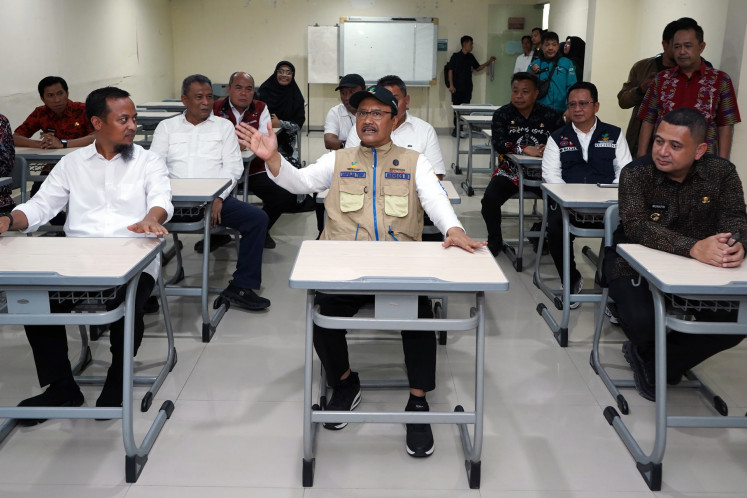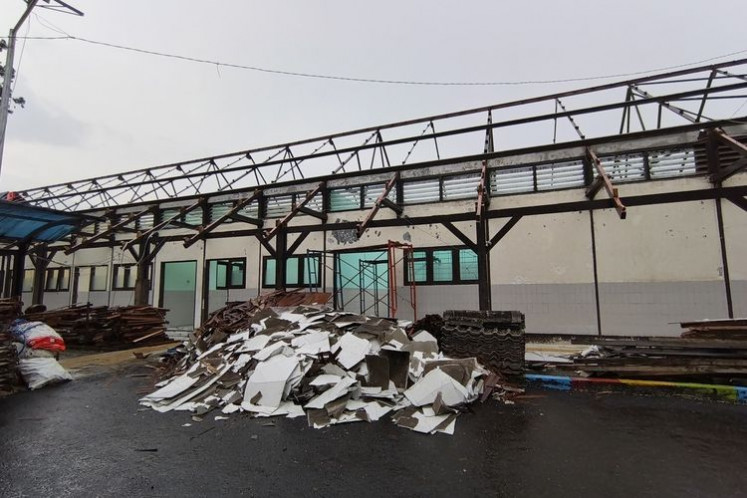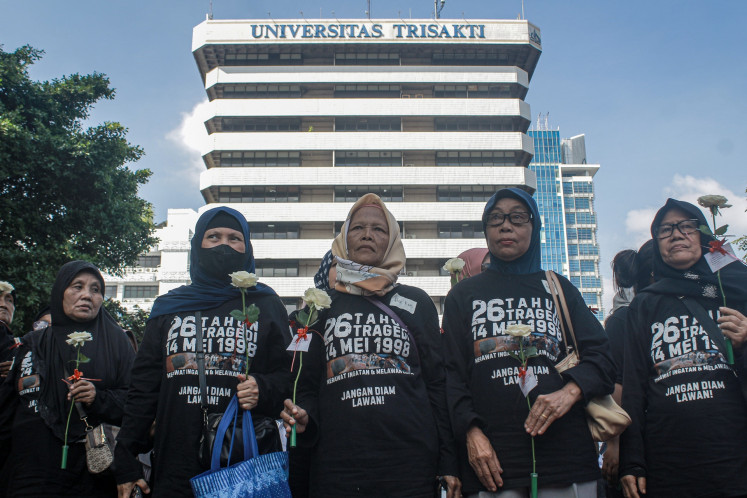Jokowi urged to build credible leadership
Jusuf Wanandi (Courtesy of DBS)Jusuf Wanandi, cofounder of the Jakarta-based Centre for Strategic and International Studies (CSIS), on Friday urged President Joko âJokowiâ Widodo to reshuffle his Cabinet soon and form a more capable working team to build a credible leadership
Change text size
Gift Premium Articles
to Anyone
 Jusuf Wanandi (Courtesy of DBS) (Courtesy of DBS)
Jusuf Wanandi (Courtesy of DBS) (Courtesy of DBS)
Jusuf Wanandi (Courtesy of DBS)
Jusuf Wanandi, cofounder of the Jakarta-based Centre for Strategic and International Studies (CSIS), on Friday urged President Joko 'Jokowi' Widodo to reshuffle his Cabinet soon and form a more capable working team to build a credible leadership.
Speaking as one of the panelists at the DBS Insights Conference, Jusuf noted Jokowi was honest with impeccable integrity and had empathy with the plight of the common people, but said he needed a capable working team he could trust and rely on as he lacked experience in national politics.
'Jokowi already knows who the deadwood is in his Cabinet. But the challenge is how he can get the right people without undue influence from political parties,' he added.
There has been widespread disappointment with the Jokowi government, with economic growth falling to 4.7 percent in the first quarter, a lack of policy coherence keeping investors on the sidelines and bureaucratic inertia causing repeated delays to budget implementation.
'Investors have been waiting for the right signal to enter Indonesia, but the President should not convey mixed signals. He should do away with the inordinate nationalistic sentiment of the Indonesian Democratic Party of Struggle (PDIP),' Jusuf remarked.
He added that the President should make a firm decision soon on the many infrastructure projects waiting to be implemented and create policy coherence to attract foreign investment.
Analysts have noted that without any significant progress in infrastructure development, Indonesia would not be able to move to a high-growth path, as excessively high logistics costs make the economy grossly inefficient and uncompetitive.
Jusuf went on that a vigorous anticorruption campaign had unintentionally caused bureaucratic inertia as senior officials had been afraid to make any decisions. Consequently, budget implementation has been very slow, leaving domestic consumption to serve as the main locomotive of economic growth.
The Finance Ministry confirmed in Jakarta early this week that capital expenditure during the first six months was less than 10 percent of the total budgeted for the whole year.
Jusuf observed that another problem that had beset Jokowi from the outset was the very high expectations of reform pinned on him.
Former president Susilo Bambang Yudhoyono, another panelist at the conference, which was attended by over 500 businesspeople and analysts, concurred that people often expected things governments were unable to deliver.
'One of the challenges of the democratic era is that there is a surplus of freedom to express opinions and too much political noise,' Yudhoyono noted.
Earlier on Thursday, Piyush Gupta, CEO of Southeast Asia's largest bank, DBS, concurred, saying that Indonesia's problem was not macroeconomic issues, but too much political noise and excessive legislative constraints on the executive branch of the government.









